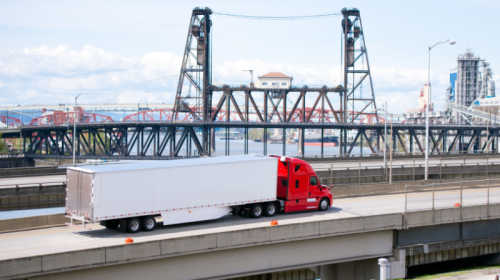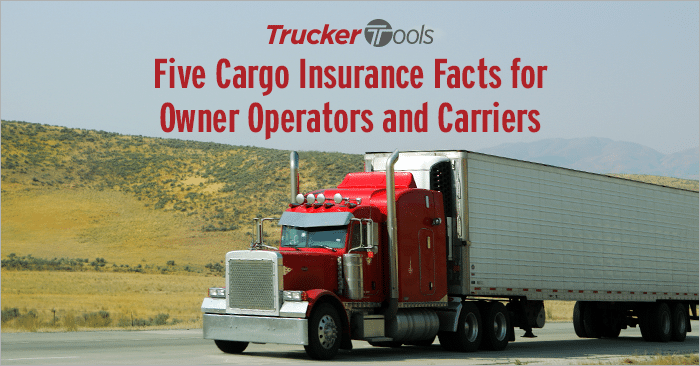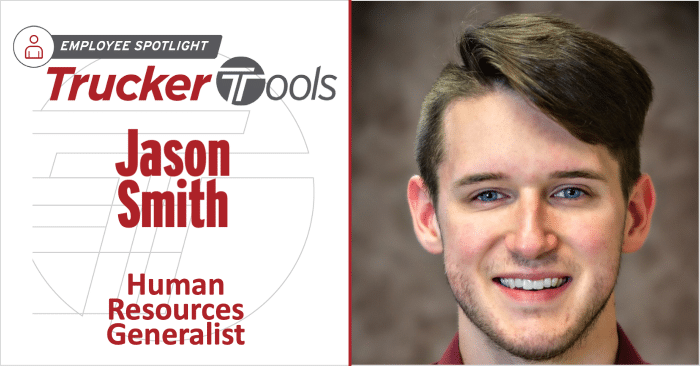With the holidays fast approaching and freight volumes at record highs, you may not be thinking much about theft and cargo insurance — but you should be! In the United States in 2020, full truckload thefts increased by 25 percent and pilferage increased by 35 percent. Despite these increases, it’s estimated that 60 to 90 percent of freight in transit is uninsured or under-insured.
Trucker Tools’ VP of Partnerships and Strategic Alliances Matt Silver recently had the good fortune to interview Loadsure’s Senior Sales Executive Ryan Penfold for Trucker Tools Talks. In the conversation, Ryan answered some of the most common questions that you might have about cargo insurance, whether you’re new to the industry or a seasoned pro.
Check out these five cargo insurance tips for owner operators and carriers like you.
1. Your Carrier Liability Policy May Not Include Cargo Insurance
You have to read the fine print, ask your broker or if you get a lot of legal jargon, you’ll want to comb through your policy yourself. Never assume that it’s covered and even if it is covered, there are stipulations in there that may disqualify a theft claim.
You have to read the fine print, ask your broker or if you get a lot of legal jargon, you’ll want to comb through your policy yourself. Never assume that it’s covered and even if it is covered, there are stipulations in there that may disqualify a theft claim.
“It depends if you have a pure cargo coverage shippers interests or an all risk policy, which is what we provide to our customers at Loadsure,” Ryan advised. “You have to read the fine print, ask your broker or if you get a lot of legal jargon, you’ll want to comb through your policy yourself. Never assume that it’s covered and even if it is covered, there are stipulations in there that may disqualify a theft claim. It’s all in the fine print. It’s an easy thing to look up, but again it really just depends upon how it’s written if it’s going to be covered or not, or if it’s included in your liability policy.”
2. Freight Brokers Aren’t Legally Required To Have Cargo Insurance
“Communication between carriers and freight brokers can be nonexistent because so much is done electronically now, so it’s important to know where you stand as a carrier in terms of cargo insurance,” Ryan said. “A freight broker is not required by law to have any cargo coverage in place, but it would be almost impossible to gain any shipper contracts or any sort of network of partners as a broker without proving that there’s a fall back on what a motor carrier is going to cover with their motor cargo coverage. Most freight brokers carry what is referred to as a contingent cargo policy, which is more of an umbrella policy.”
3. Congested Areas Have Higher Theft Rates
“Theft is big where there’s congestion,” Ryan shared. “There’s more opportunity for theft where there are more people. The state of Texas has incrementally become more of a risk heavy state and region. Obviously L.A., San Francisco and the California cities have always been high risk areas and they continue to be. Dade County, most of Southern Florida and even mid-Florida are highly populated areas and there’s a lot of theft there. Chicago and the state of Louisiana have definitely become high-risk for most insurance carriers over the last ten years, and obviously the five boroughs of New York City, too.”

4. Common Sense Best Practices Can Help You Avoid Theft, Pilferage
Truck stops, drop lots and public parking areas all are hot spots for theft.
Truck stops, drop lots and public parking areas all are hot spots for theft.
“Truck stops, drop lots and public parking areas all are hot spots for theft,” said Ryan. “You may think that because you’re parked in public you’re fine, but it’s definitely going to attract more trouble, which you want to avoid. If you’re a fleet, coach your drivers to make sure that they are fully fueled, fully fed, fully rested and with enough driving hours to travel at least four to six hours, preferably six hours. Never stop within 200 miles of your pick or your drop. That’s where pre-planned spotters are going to be lurking and you’re just a sitting duck. Control the controllables. Educate yourself. Educate your staff. Back up to a wall, a pole, or any sort of object that will prevent the doors of the trailer from being opened. You also can get trailer seal guards that require a diamond bit to remove.”
5. Use the Trucker Tools App To Trip-Plan, Reduce Chances of Cargo Theft
“I’ve worked with a lot of shippers that actually would check fuel gauges themselves and not load a truck that wasn’t fully fueled,” Matt said. “If you need route planning and overnight parking in secured lots, all of that is available in the Trucker Tools app. All of the information is free and right at your fingertips, so use it. Protect yourself. Don’t let a mistake end up a costing you a load or a relationship with that broker or shipper. Ultimately, cargo theft is going to affect your cargo insurance rates like everything else in insurance. When you start costing them money, they start charging you more.”
To learn more about Loadsure, visit https://www.loadsure.net.
For the rest of the conversation between Matt and Ryan, check out the full Trucker Tools Talks episode. To download Trucker Tools’ all-in-one mobile app, visit https://www.truckertools.com/carriers/.






